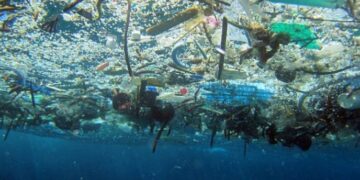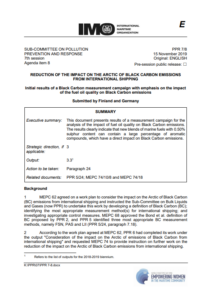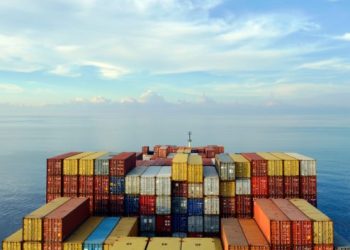Finland and Germany submitted a study to the IMO’s Pollution Prevention and Response (PPR) sub-committee, in order to be revised during its session scheduled for February. This document presents results of a measurement campaign for the analysis of the impact of fuel oil quality on Black Carbon emissions. The results indicate that new blends of marine fuels with 0.50% sulphur content can contain a large percentage of aromatic compounds, which have a direct impact on Black Carbon emissions.
Document MEPC 74/10/8 (Finland et al.) suggested draft terms of reference for the PPR Sub-Committee to reduce the impact on the Arctic of Black Carbon (BC) emissions from international shipping, which were supported, in principle, by the majority of delegations at MEPC 74.
[smlsubform prepend=”GET THE SAFETY4SEA IN YOUR INBOX!” showname=false emailtxt=”” emailholder=”Enter your email address” showsubmit=true submittxt=”Submit” jsthanks=false thankyou=”Thank you for subscribing to our mailing list”]
At MEPC 74, some delegations expressed the view that the recommended BC measurement methods needed additional work to achieve convergence of results and agreement, and that the impact of the 0.50% global sulphur limit needed to be considered.
Germany has therefore conducted a BC measurement campaign with two of the three identified appropriate BC measurement methods (FSN and PAS) to analyse the impact of different fuel oil qualities on BC emissions.
The measurement campaign was conducted by WTZ Roßlau and was assisted by MAN ES, DNV GL and Marena Ltd. The project was funded by the German Environment Agency.
Description of the Black Carbon measurement campaign
Emphasis of the measurement campaign was to analyse the BC emissions of future hybrid fuels with 0.50% sulphur content from different sources and different production processes, in comparison to two conventional fuels, HFO and DMA, and a possible future synthetic Gas to Liquid (GtL) fuel, at varying engine ratings on a test bed.
The tested 0.50% sulphur fuels have been ordered as possible sample mixtures from refinery-streams most likely to be used in 2020. A high aromatic content in future low sulphur marine fuels after 2020 is expected.

The range of measurement values was very low and narrow for the different fuels at 100% engine load followed by 50% load. At 75% load, the spread of the FSN data from different fuels continues to increase, while at 25% load, the FSN data show the largest differences for the different fuels.
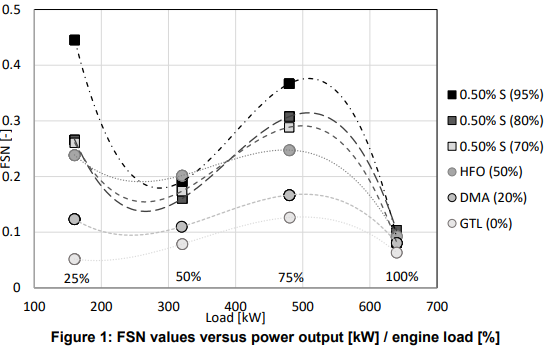
For a better visualization, the BC emissions are presented separately for each fuel as box and whisker plots in the following figure. The box plots are statistical graphs, where the boxes include the upper and lower quartiles (25-75% of the data).
The BC emissions in this study are in a range between 0.56 and 8.3 mg/Nm³. The lowest BC emissions have been observed at 100% engine load for all fuels below 2 mg/Nm³. The highest BC emissions were generally detected at 75% and 25% engine load. The 0.50% sulphur fuel with 95% aromatic compounds showed the highest BC emissions at 25% load with 8 mg/Nm³, followed by 75% load with 7 mg/Nm³.
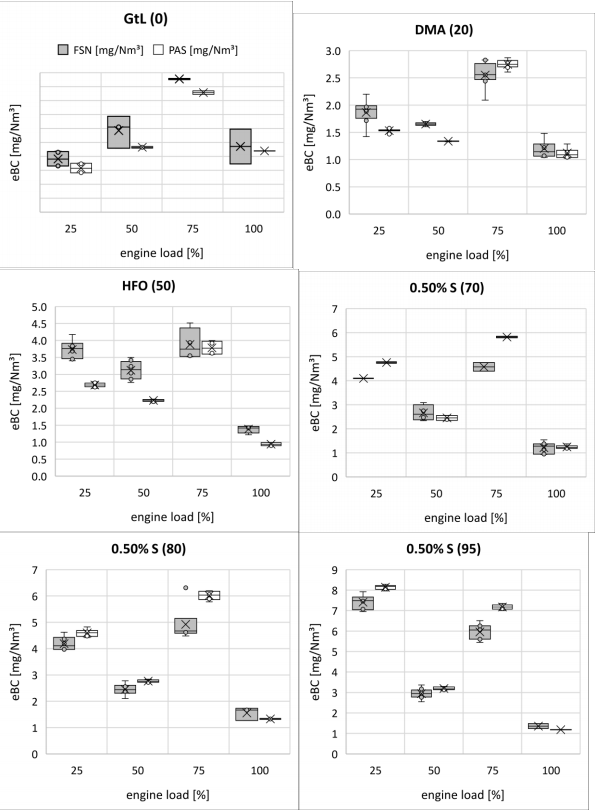
The 25% load point had the highest differences in BC emissions between the fuels with the following order (in brackets: aromatic compounds): GtL (0%) < DMA (20%) < HFO (50%) < 0.50% sulphur (70%) < 0.50% sulphur (80%) < 0.50% sulphur (95%). This order leads to the assumption that the concentration of aromatic compounds might have an impact on the BC emissions of the various fuels. Therefore, the BC data in figure 3 are plotted against the aromatic content to see if this hypothesis holds true.
In addition, the eBC emissions for each engine load (25%, 50%, 75% and 100%) in relation to the aromatic content of the fuels (GTL 0%, DMA 20%, HFO 50%, 0.50% sulphur 70%, 80% and 95%):
- There is a clear trend for increasing BC emissions with increasing aromatic content in the fuels with correlation coefficients for the PAS data of 0.86; 0.98 and 0.97 for 25%, 50% and 75% engine load, respectively. For the 100% engine load there was no clear trend, possibly due to the comparatively low BC emissions;
- For the 50% engine load, the FSN BC data for HFO (50% aromatic content) deviate upwards from the linear trend as compared to the PAS data, while for the 75% load, the FSN BC data for the 0.50% sulphur fuels deviate downwards;
- The BC emissions are also influenced by the engine load, with 100% showing the lowest and 75% and 25% showing the highest BC emissions. Furthermore, the spread of the data is much wider for 75% and 25% load as compared to the other engine loads.
Conclusions
The study concluded to the following results:
- The PAS instrument measured higher BC emissions for the three 0.50% sulphur fuels as the FSN, while the FSN measured higher BC emissions for the GtL and HFO fuels. For DMA, both instruments agreed well. The FSN data showed a slightly higher scattering than the PAS data and the reproducibility was slightly higher for the PAS instrument;
- The measurement study has demonstrated that the combustion of fuels with higher aromatic content emits higher concentrations of BC. New hybrid fuels with 0.50% sulphur content used in the study contained a high proportion of aromatic compounds in a range of 70% to 95%, which resulted in increased BC emissions in a range of 10% to 85% compared to HFO and in a range of 67% to 145% (a factor of 2.45) compared to DMA;
- The results of this measurement campaign imply that it is necessary to implement aromatic content, or H/C ratio, in the specification of marine fuels of the ISO 8217 petroleum standard. This would enable a better qualification of marine fuels with respect to their environmental performance in terms of BC emissions and benefit their characterization for ignition and combustion quality. It is suggested that the International Organization for Standardization review ISO 8217 to include specifications taking into account these results.
You may see more information in the following report












